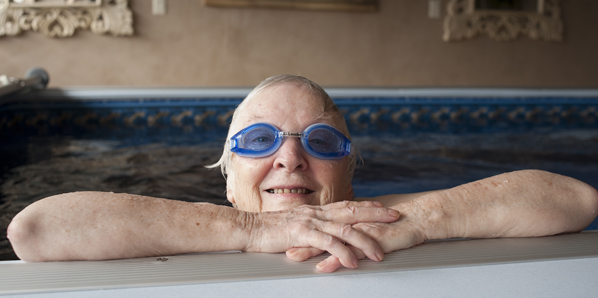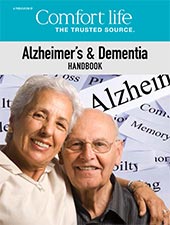Five ways to reduce Alzheimer's risk and keep memory strong
“The brain thrives on mental activity. The worst thing you can do to a human is put them in solitary confinement.”Dr. Sharon Cohen, Director, Toronto Memory Program
Dr. Sharon Cohen and her colleagues at the Toronto Memory Program are working on a “cookbook” of sorts. Only instead of catering to our stomachs, this one is focused on nourishing our brains.

The behavioural neurologist and former speech pathologist spoke this morning at Elder Connection, a networking group that brings together people who help older people. Dr. Cohen discussed the five key ingredients necessary to reduce our risk for Alzheimer’s disease and keep our memory strong.
Physical Fitness
Adults who engage in regular exercise are less likely to develop Alzheimer’s disease. In an ideal world, this includes aerobic exercise, strength training and flexibility training. Don’t like to sweat? Don’t worry – even gardening or walking the dog is better than nothing. And the sooner you start the better – ideally while you’re still in your 20’s. Don’t worry if you’re a late bloomer though – Dr. Cohen assures us it’s never too late to start.
Diet
It’s true – we are what we eat and we can eat our way to improved brain health. The Mediterranean diet, with its emphasis on fruits, vegetables, fish and olive oil, is the gold standard. Wondering what to stay away from? According to Dr. Cohen, red meat, butter and sugar should all be consumed in small quantities.
Sleep
A good night’s sleep makes us feel better, look better, and helps our brains age better. Lack of sleep is associated with the development of toxic plaques in the brain.
Stress
If you’re like most people, you probably have trouble remembering things when you’re stressed. Researchers have delved into this phenomenon further and it appears there’s a link between stress hormones and the development of proteins related to Alzheimer’s disease. That means that something as simple as learning to manage stress may improve our odds of not developing the disease.
Cognitive Fitness
Start a Sudoku, complete a crossword, buy brain fitness games – you can take your pick. Just start exercising your brain today.
Visit the Toronto Memory Program for more information.
Karen Hamilton is a freelance writer who writes about current seniors issues. You can reach her at [email protected]
****
Related articles:
Life Times: The game of reminiscence
Alzheimer's and dementia: what's the difference?
Long-term care insurance: Should you buy it?


